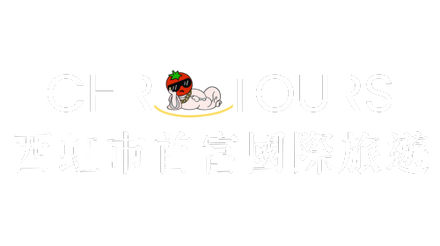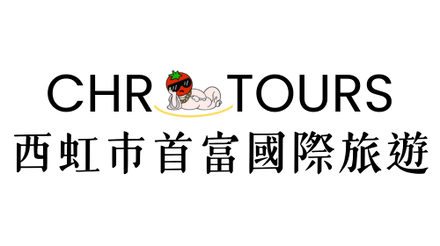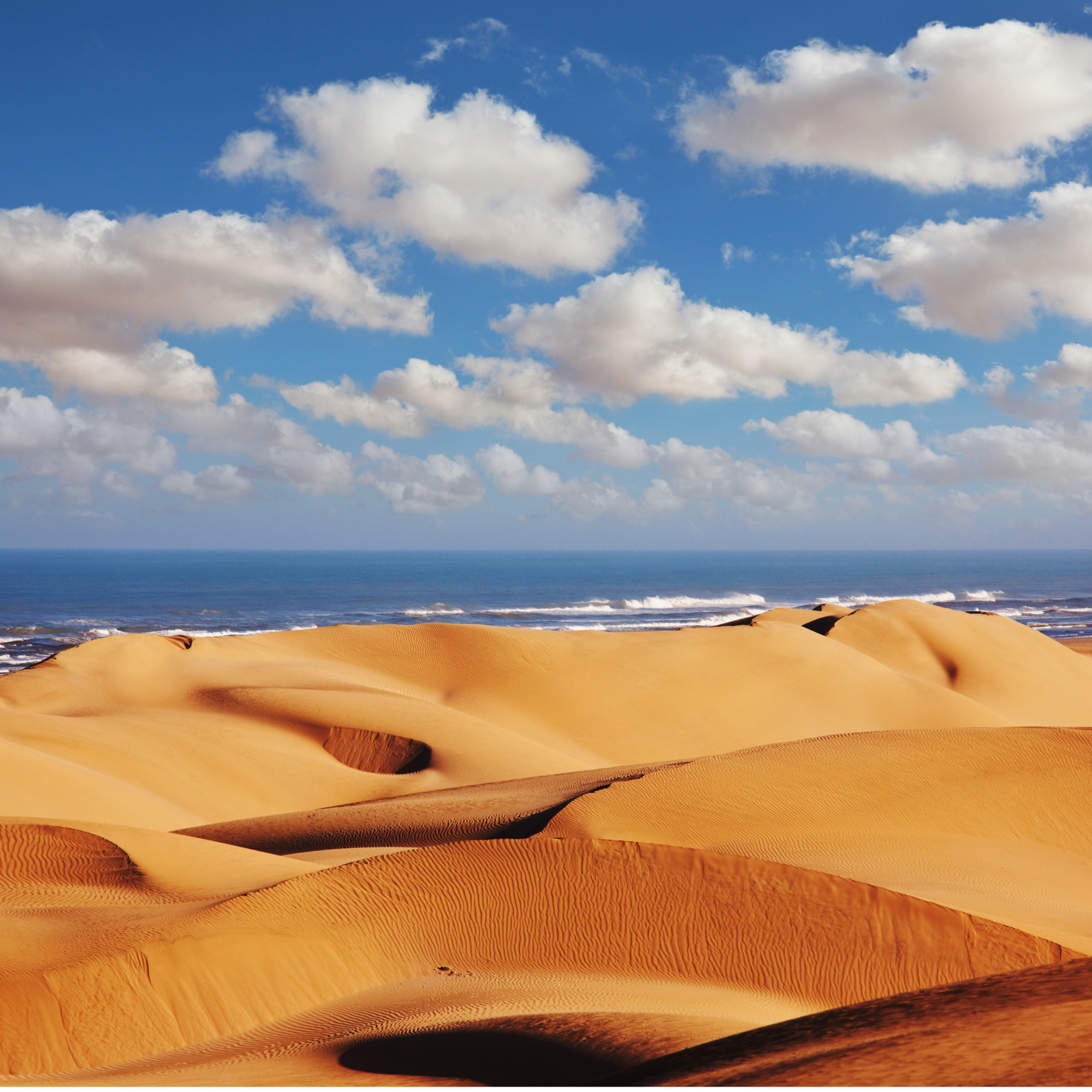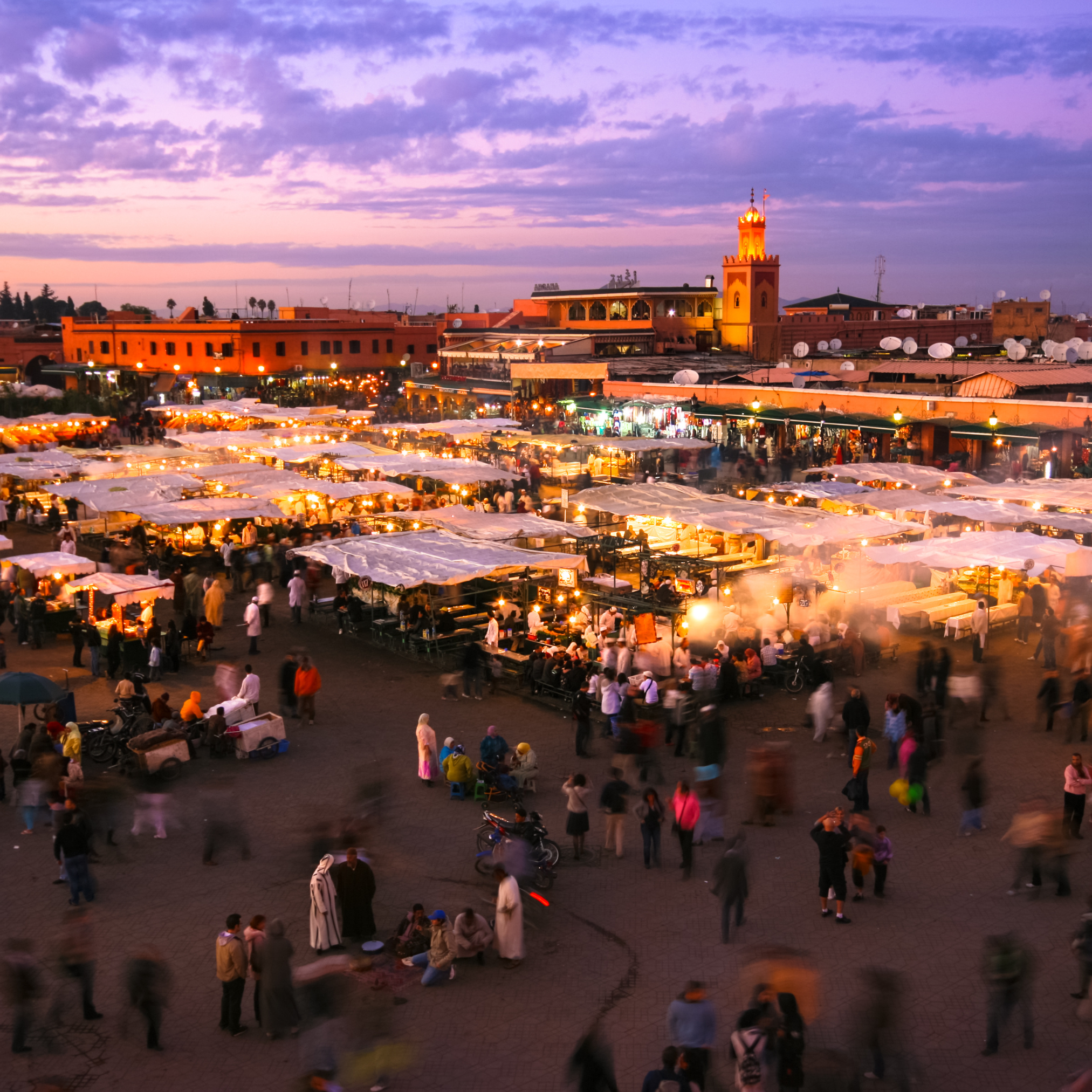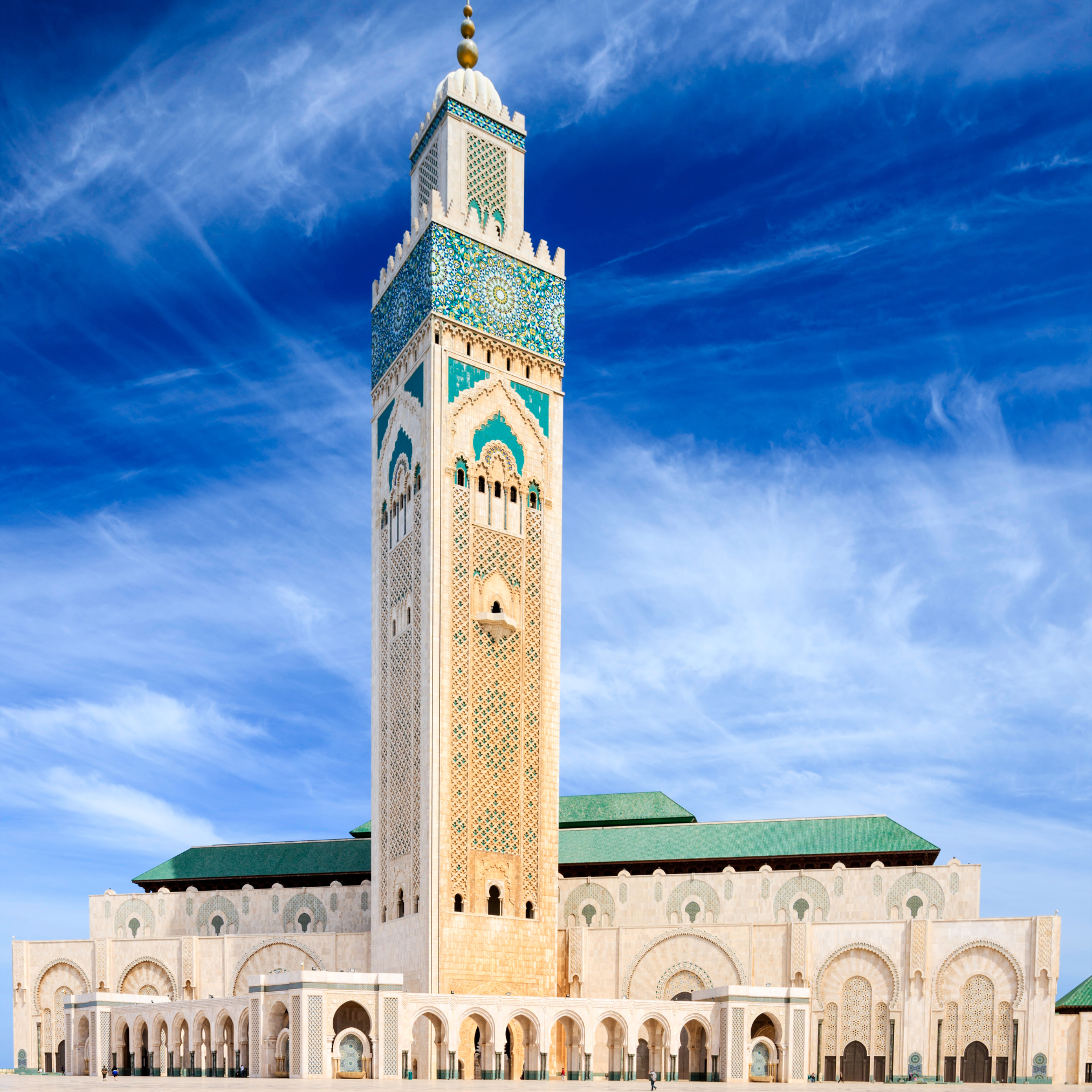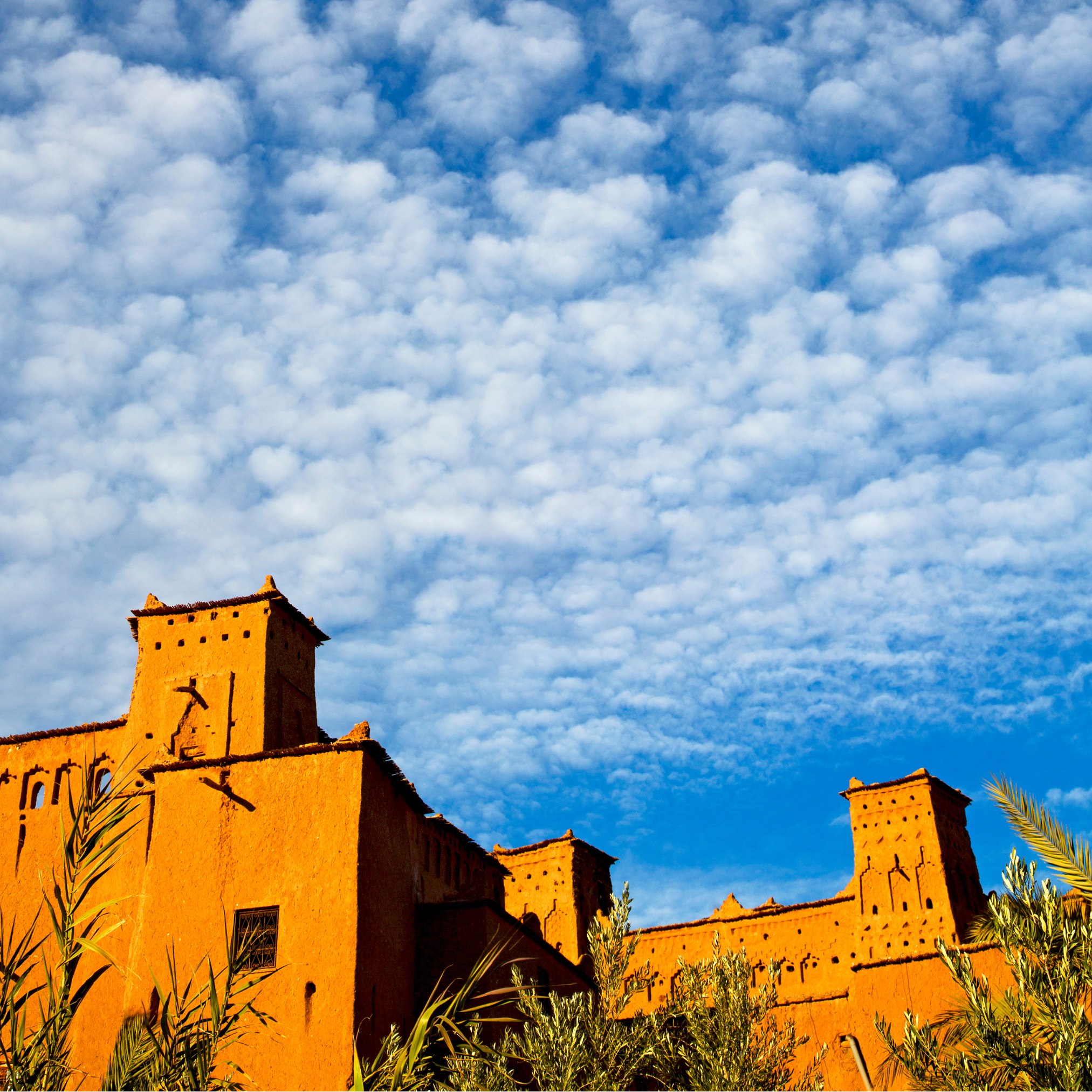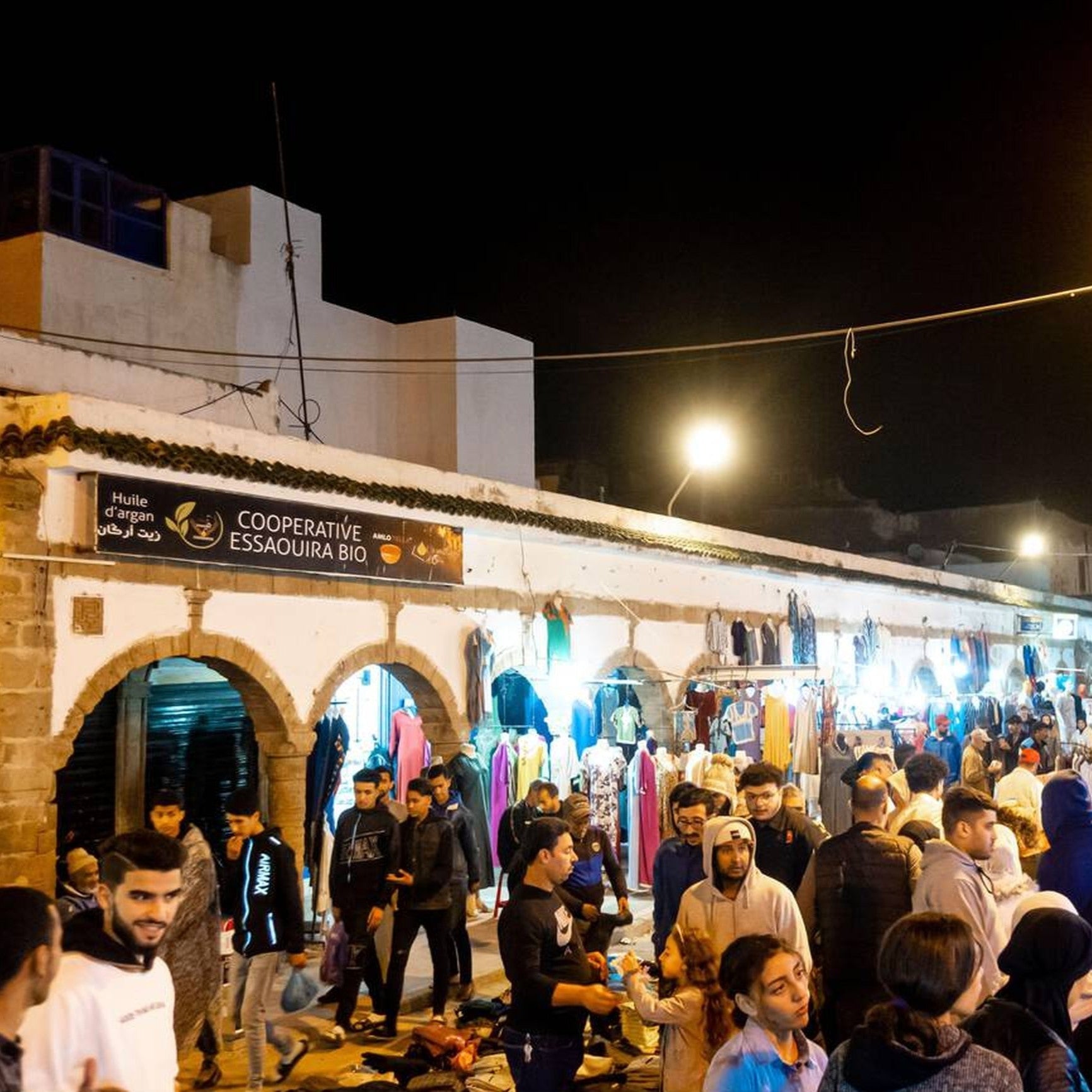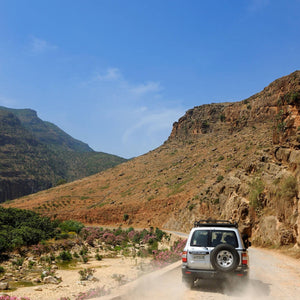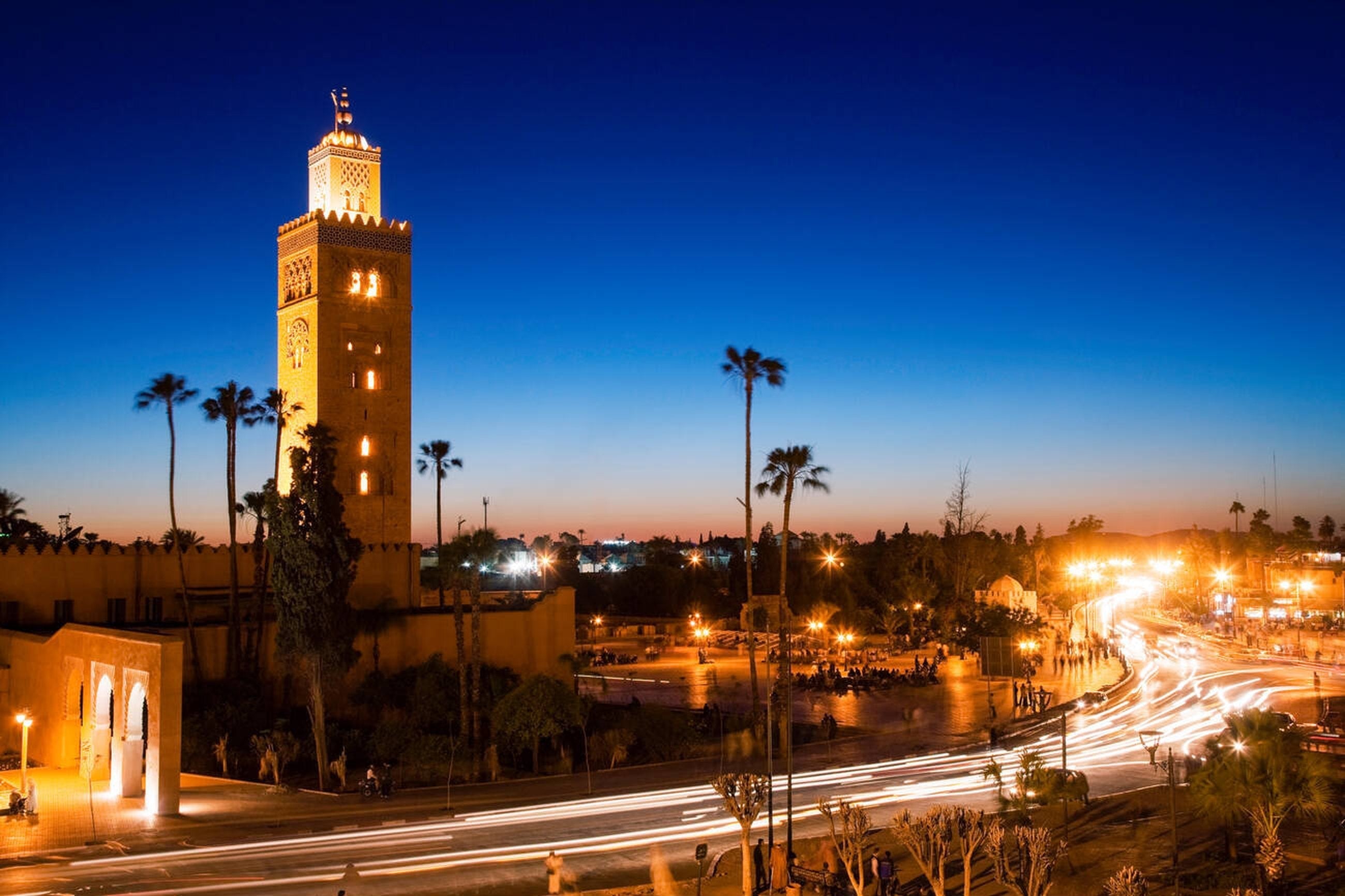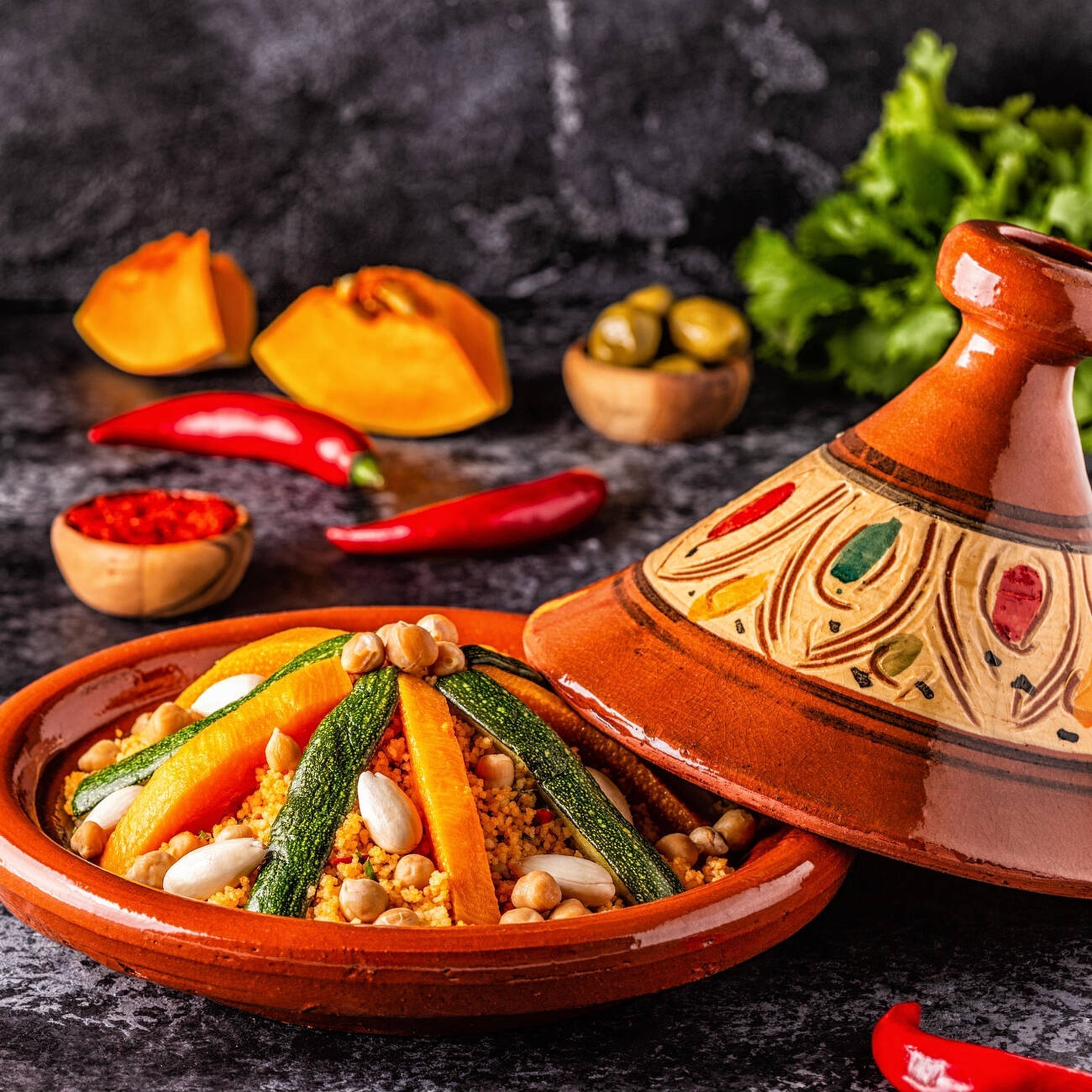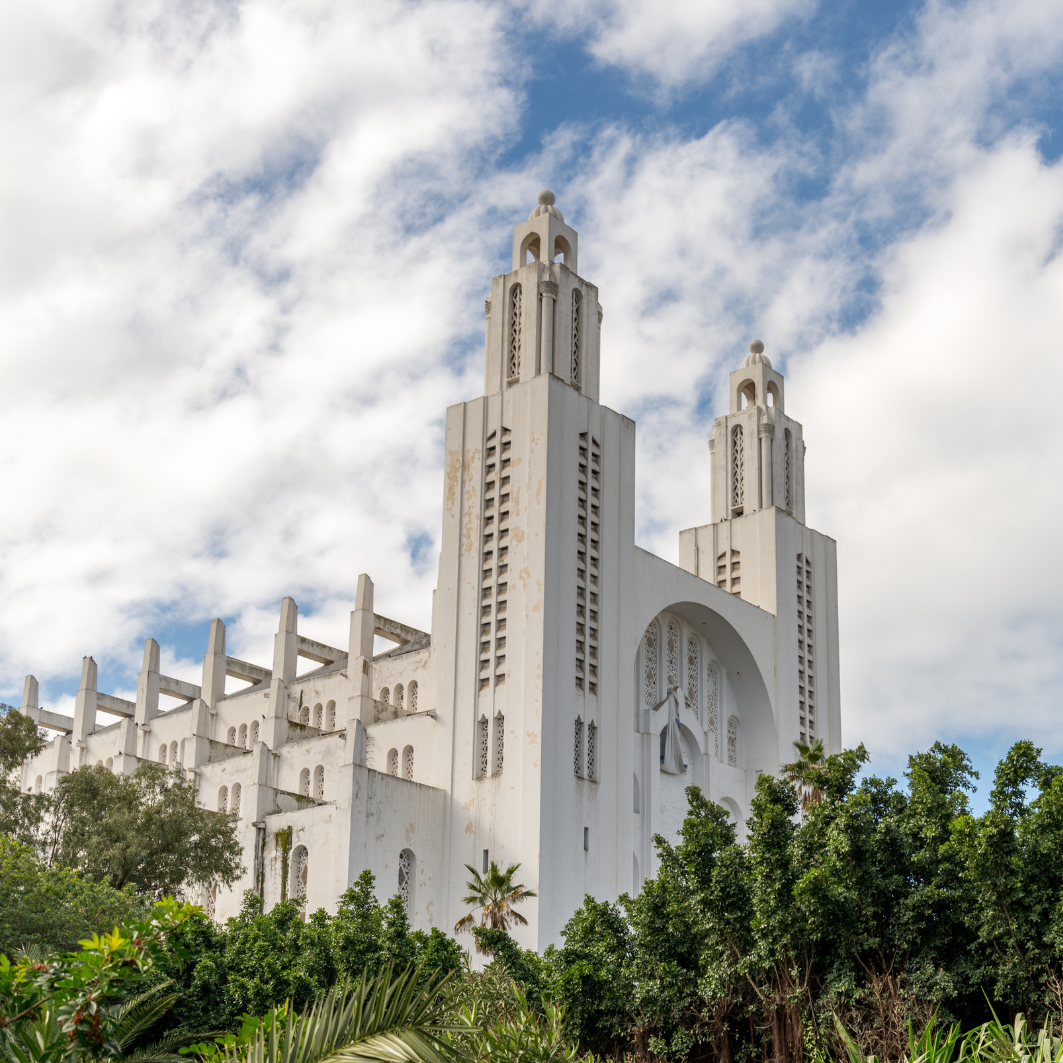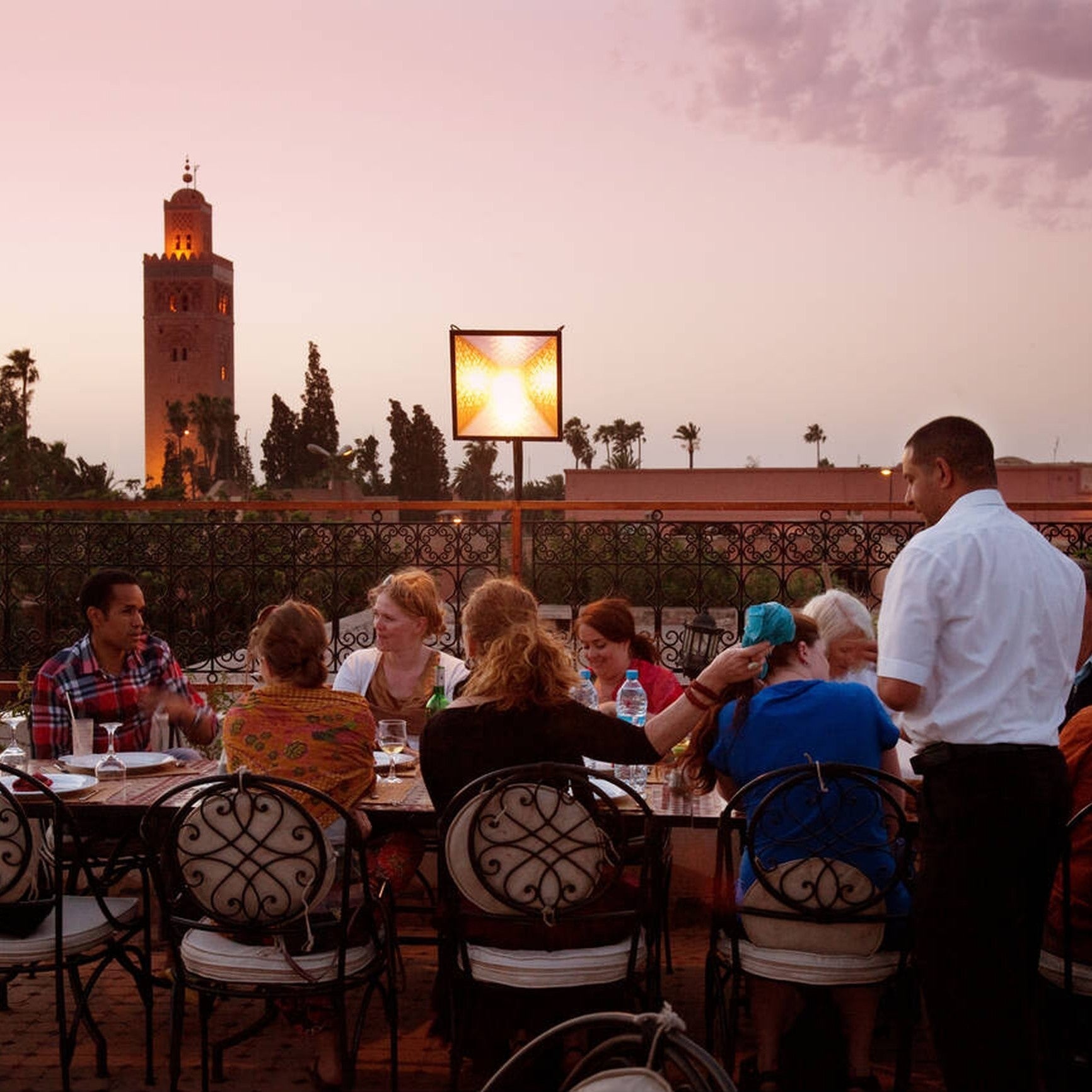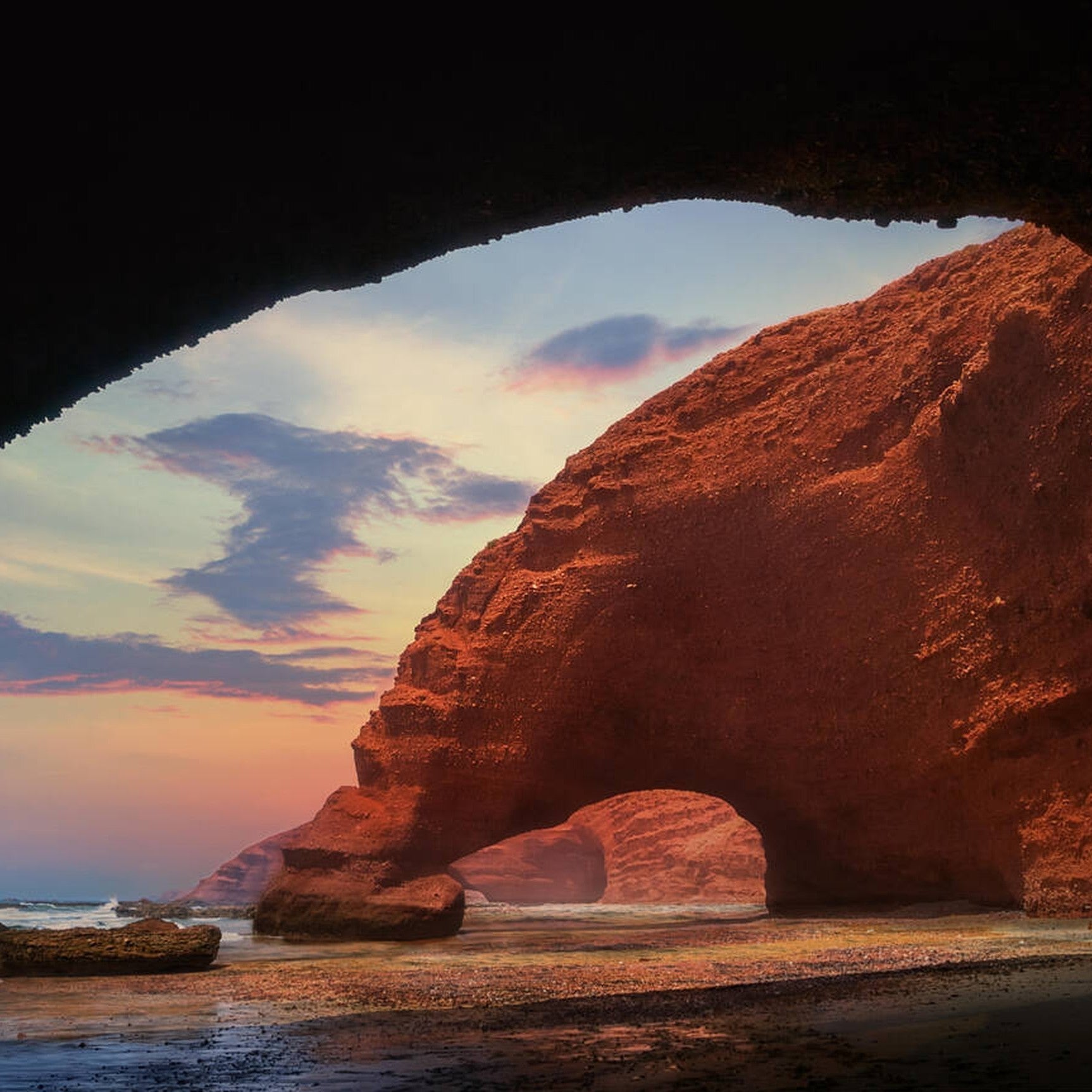Introduction
Wondering if the Islamic fasting month of Ramadan in Morocco will affect your trip to Morocco? Then let's learn about Ramadan in Morocco.

What is Ramadan?
Ramadan is the month that commemorates the revelation of the Quran by Allah to the Prophet Muhammad. This revelation occurred in the ninth month of the Islamic calendar, so this month is considered the holiest month of the year. During this period, Muslims around the world express their reverence for Allah through fasting and other means.
Ramadan, reciting the word of faith, praying five times a day, giving alms to the poor and making a pilgrimage to Mecca are the five pillars of Islam, so Ramadan is very important to Moroccans.
When is Ramadan?
Ramadan is the ninth month of the Islamic calendar. Since the Islamic calendar is based on the lunar calendar, the start time of Ramadan each year will be about 10 days earlier than the Gregorian calendar. In 2025, Ramadan in Morocco is expected to start on February 28 or March 1 and last until March 29 or 30. It is important to note that the exact start and end dates of Ramadan may vary depending on the moon phase.
What does Ramadan mean to Muslims?
The Quran requires Muslims to fast from sunrise to sunset, abstain from food and water, abstain from smoking, swearing, gossiping, and should not engage in any sinful or unclean activities, but should purify their behavior and do only good deeds.
Other unclean behaviors. Sick people, pregnant women, and breastfeeding women are exempt from Ramadan, but are expected to make up for it later.
Children under the age of 16 are not required to fast, but many will gradually adapt by fasting for a short period of time. Children often choose to do their first fast on the "Night of Power". The "Night of Power" is a special night of prayer, usually the 27th night of Ramadan in Moroccan culture.
Ramadan is designed to remind Muslims to cherish the good fortune they have, call on everyone to pay attention to the situation of those who are suffering, and purify their hearts and deeds, and strive to be more charitable and loving people. Muslims consider Ramadan a time to purify the body and soul.
At the end of Ramadan, Muslims celebrate the end of the fast with the three-day Eid al-Fitr festival, where children receive gifts or red envelopes.
Is Ramadan a good time to travel to Morocco?
Many tourists worry whether Ramadan will affect their trip to Morocco. In fact, Morocco still warmly welcomes tourists during Ramadan, and major attractions are open as usual. Although the pace of life in these countries will be slightly slower between sunrise and sunset, as most Muslims stay at home to sleep and spend time with family and friends. However, once the final call to prayer sounds, the city will wake up! Traveling during Ramadan can give you a deeper understanding of Islamic culture and feel the festive atmosphere of Morocco.
Traveling to Morocco during Ramadan: What should you expect?
Special Events and Ceremonies
At the beginning of Ramadan every year, King Mohammed VI of Morocco presides over the opening ceremony of a series of Ramadan religious lectures (a total of 8-9 sessions) at the Royal Palace in Rabat. The first lecture is given by the Minister of Religious Affairs and broadcast live on television and radio stations across the country. Later, the series of lectures moved to the Royal Palace in Casablanca and the Hassan II Mosque, inviting theologians and authoritative imams from the Islamic world to give lectures. The king always attends with Crown Prince Hassan and Prince Rashid.
Iftar

Every day at sunset, the cannons of the mosque will sound with the sound of the prayer broadcast, indicating that the fast is broken. Afterwards, Muslims break the fast with a meal called f’tour or iftah. Usually, they will take a sip of water and eat a few dates to commemorate the Prophet Muhammad’s practice of breaking the fast, and then enjoy a rich dinner. This period is also a time for family and friends to gather.
Nightlife
After Iftar, children run out to play in the streets, many people walk or visit relatives and friends, and the whole city is full of life.
Special Foods During Ramadan
Some traditional Moroccan foods are only available during Ramadan. During this time, you can taste many traditional delicacies, such as Harira (Moroccan soup), dates and Chebakia (sesame sweet cakes).
What to pay attention to when traveling to Morocco during Ramadan?
1. Business Hours
Shops, banks and post offices usually open later until 11-12 pm and reopen after sunset.
Some shops and restaurants often give employees a month to be with their families, and many of them close during Ramadan. However, restaurants and shops that cater to foreigners are still open.
Dinner time may be later than usual, and open restaurants usually start serving after 8:30 pm.
2. Alcohol restrictions
From the week before Ramadan to 3 days after the end of Ramadan, many supermarkets and restaurants stop selling alcohol. You can buy alcohol in tourist restaurants owned by foreigners, or find some alcohol in some larger hotels and Riads, but the selection is limited and the price is higher.
3. Transportation and dining
Public transportation still maintains a relatively normal schedule. However, taxis are almost impossible to find during the f'tour (around 7:30 pm).
4. Cultural respect
Avoid eating, drinking or smoking in public. Avoid shorts, miniskirts and clothes with bare shoulders.
5. Festival preparation
Iftar at the end of Ramadan is an important festival in Morocco, which is comparable to Christmas celebrations in the West. In the days before the festival, many shops, kiosks, banks, etc. are closed because local families will travel during Iftar, so it is necessary to plan your trip in advance.
Respect Moroccan Culture During Ramadan
Moroccans are very welcoming to tourists and travelers and understand whether you share the same or different religion as them. If you are not Muslim, they will not expect you to fast. However, you can better respect the local culture by:
1. Do not eat or drink openly on the streets of the Medina because everyone around you is fasting. Try to eat and drink in places open to non-Muslims, such as hotels or private spaces.
2. Be careful about your dress, especially in traditional areas such as the Medina.
3. Avoid smoking in public.
4. Our drivers and guides understand that you may not participate in fasting, so eating in front of them will not offend them.
5. If you have the opportunity to be invited by locals to join an Iftar (f’tour) or Eid celebration, don’t miss it. This is the best way to experience Morocco’s Ramadan traditions firsthand, and although you may have to stay up late, the experience will be extremely worthwhile.
Is it worth visiting Morocco during Ramadan?
The answer is yes! Although you may need to adapt to some adjustments in your daily life during Ramadan, it provides a great opportunity to get to know Moroccan culture in depth. From the bustling streets after sunset, special traditional food, to the grand Eid celebrations, a trip to Morocco during Ramadan will be an unforgettable experience.
As long as you plan your trip in advance and respect the local culture, you will be able to enjoy the unique charm of Morocco during this holy month!
If you want to know more about Morocco festivals and cultural events, please refer to our blog: Morocco traditional festivals and national holidays.
If you want to know more about Morocco, please refer to our blog: Morocco travel guides.
Planning to travel to Morocco? You can refer to these itineraries for inspirations:
3-Day Sahara Adventure: Marrakech to Fes via Ait Benhaddou & Merzouga Desert
5-Day Journey through Northern Morocco: A Blend of History and Culture
7-Day Morocco Adventure: A Custom Journey from Marrakech
13-Day Moroccan Odyssey: A Custom Journey from Casablanca
Want to customize your Morocco travel itinerary? Feel free to contact us for personalized tour experiences:
Email: [email protected]
WhatsApp: +212713053383
WeChat: MLG0714624860
